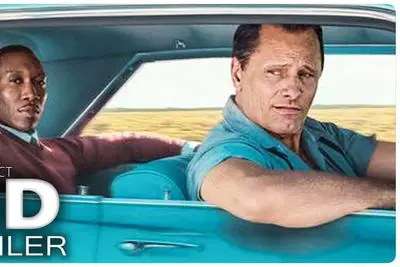Green Book Is This Year's Best Feel Good Movie About Racism
The Oscar for Best Picture goes to a movie about racism made without almost any input from the minorities it represents.

When Green Book won the Oscar for Best Picture, Spike Lee was noticeably outraged, very nearly leaving the theater before calming down and returning to his seat.
While some might view his behavior as poor sportsmanship, his anger makes a lot of sense considering the content of Green Book compared to his own Best Picture-nominated movie, BlacKkKlansman.
Both movies are essentially about racism. But while BlacKkKlansman tackles the subject through a subversive story about a black policeman attempting to take down a racist organization from within a semi-racist police force, Green Book essentially amounts to a white savior narrative about a white man who overcomes his racist tendencies through befriending a black man. Perhaps it should come as no surprise that a white director helmed Green Book and that it was written by a white writer, too. In other words, a movie about racism against black people made by white people beat out a film about racism against black people made by black people.
So what's wrong with Green Book? Putting aside the film's disputed truthfulness and the screenwriter's prior racist tweet, nothing really. Overall the movie has a very positive message: if you get to know someone of another race, racism can't survive. It's a simplified take on race relations, sure, but that's to be expected from a movie intended to make white people feel good about not being racist.
The problem with Green Book exists within its broader social context, which becomes exacerbated when the movie is held up as Best Picture over another movie which tackles racism from a firsthand, black perspective. In this light, Green Book's feel-good messaging falls apart. In reality, getting to know someone of a different race does not solve racism. That's where the "I have a black friend" and "but they're one of the good ones" sentiments come from. It's nice that viewers can walk away from Green Book feeling positive about race relations, but there's a reason that messaging is coming from a movie helmed by white people–because it's not a sentiment that rings true for most minorities.
The fact that a feel-good movie about racism could win Best Picture in our current social climate says a lot about the Academy. For one, it highlights the Academy's overwhelmingly white voting base. For another, it suggests that even now, after all of Hollywood's hubbub over diversity, white voices still take precedence over black ones.
In many ways, the Oscars are no longer relevant. The lack of a host at the Oscars this year betrays the indifference many celebrities feel towards the event. And outside Hollywood, many people view the awards show as overly self-congratulatory. But therein lies the larger problem: many of the people in the Academy are the same ones responsible for getting movies made. Many of them are the gatekeepers that minority voices need to get past in order to be heard. And when their interests align with a film like Green Book over a movie like BlacKkKlansman, it suggests that, in spite of all Hollywood's claims of wanting diversity, what they really want is reassurance pandering to the old guard.
Dan Kahan is a writer & screenwriter from Brooklyn, usually rocking a man bun. Find more at dankahanwriter.com
POP⚡DUST | Read More...
Fetishizing Autism: Representation in Hollywood